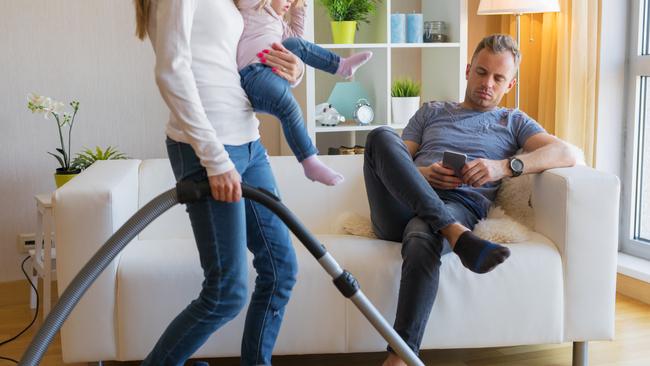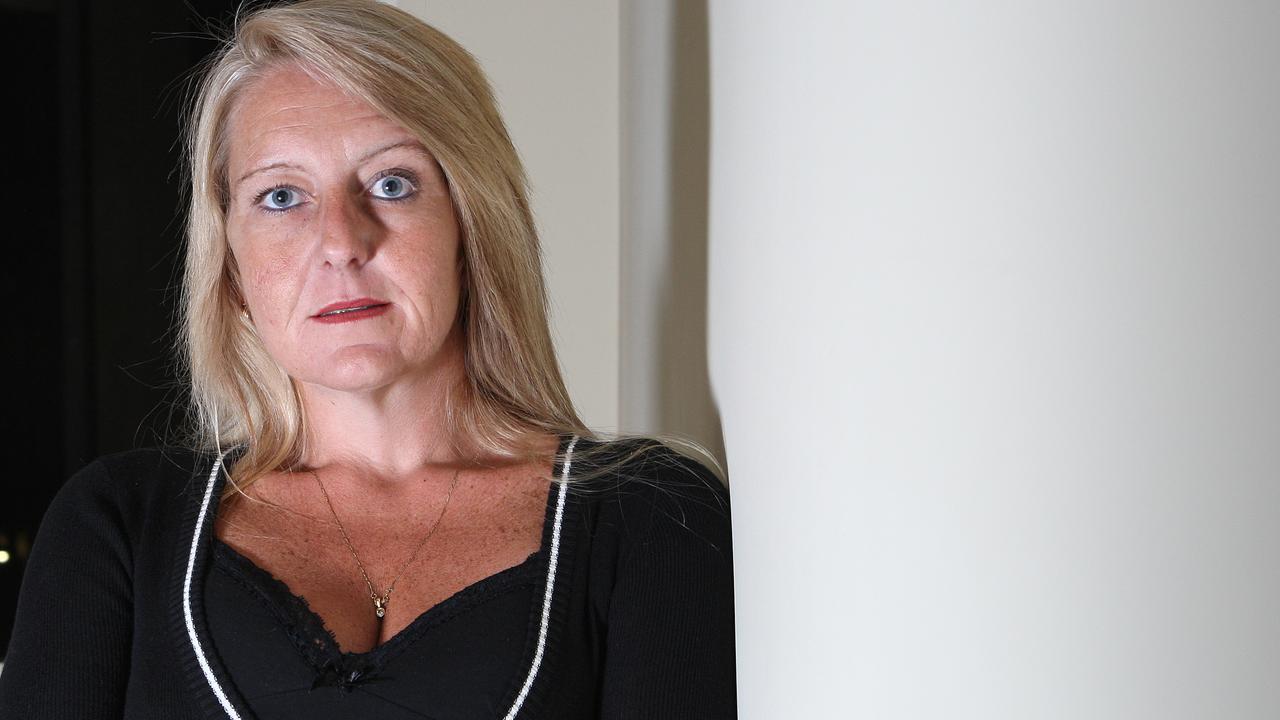Men, especially dads, clueless about being housework-shy
One in three Australian mothers with kids living at home are dissatisfied with who does what around the house, but only eight per cent of dads have the same view. How does your household compare?

Women, particularly mothers, continue to spend substantially more time than men doing unpaid domestic work, and many are not happy about it, a new report finds.
The study also identifies another gender gap when it comes to the household chores, the gap in perception between men and women about how much they actually do.
For instance one in three Australian mothers with kids at home are dissatisfied with the division of household labour, compared to just eight per cent of fathers.
The research, part of the Melbourne Institute’s Taking the Pulse of the Nation survey, reveals that who does the washing, cooking, cleaning, shopping, gardening, DIY and caring for kids or parents remains a sore point for many couples.
On average women do 22.3 hours of unpaid domestic work per week compared to men’s 15.3 hours, the report, based on responses from more than 1300 men and women in March this year, finds.
This gap is at least partly due to choices made in a family about who does paid and unpaid employment, but that is nowhere near the whole story, it says.
Full-time employed women work slightly more around the house than full-time men, 16 hours to 14 hours per week. But when dependent kids are involved, the weekly workload of women doubles from 15 to 30 hours a week, while for men it increases by five hours to 20 hours a week.
Part-time employed men are an outlier, doing less around the house (11 hours a week) than full-time male workers.
Melbourne Institute research fellow Sarah Dahmann, the report’s co-author, said the finding about part-time working men’s unpaid domestic hours was a surprise.
“Maybe gender-stereotypical roles are getting in the way here, if they struggle with not being a full-time breadwinner and so want to avoid being perceived as a homemaker instead at all cost,” Dr Dahmann said.
Men also don’t fully acknowledge the gender difference in the amount of unpaid labour done, the study finds.
While 62 per cent of women say their partner contributes less time around the house than they do, only 57 per cent of men believe their partner contributes more time.

For parents this perception gap is even wider. “More than two out of three women with children under the age of 18 in the household (69 per cent) indicate their partner contributes less – ranging from a bit less (17 per cent), a lot less (47 per cent), to nothing at all (5 per cent),” the report notes.
“Only 56 per cent of fathers, however, recognise their partner doing more,” it says.
Dr Dahmann said one explanation could be that “many of the chores people do might go unnoticed by their partners”.
“For example the mental load of mothers – just being on top of everything that has to be done – is huge, however, it could be almost invisible to their partners,” she said.
Unsurprisingly this flows through into broader dissatisfaction with the domestic arrangements, especially in households with kids at home.
“In households with children under the age of 18 every third mother (32 per cent) is either very or moderately dissatisfied with the division, compared to only eight per cent of fathers,” the study shows.
“Partnered fathers in turn are the most satisfied with their within-couple division with 63 per cent either moderately or very satisfied, compared to less than half of all partnered mothers (44 per cent).”
More broadly, parents are doing less unpaid work than last year, with mothers’ hours falling from 35 in March 2023 to 30.4 this year and fathers from 19.7 to 16.4 hours.
Dr Dahmann said while the survey didn’t examine the reason for this, it may be that greater government child care subsidies introduced last year played a role.






